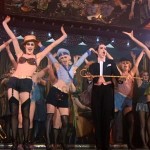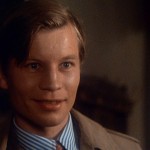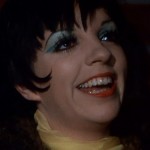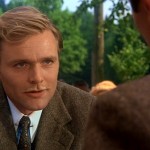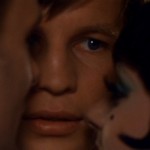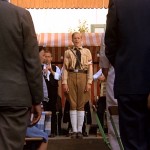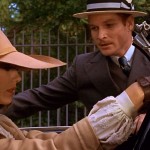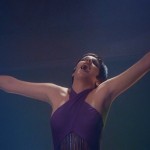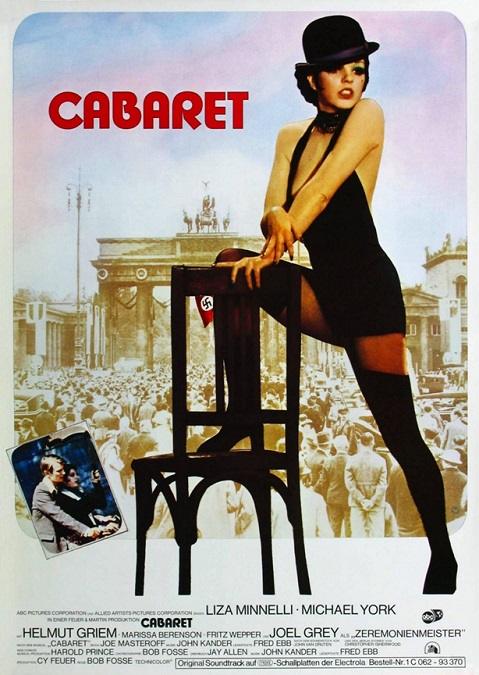
Cabaret – 1972
Here we have a very famous musical, one that was based upon an original book called The Berlin Stories by Christopher Isherwood. Composer John Kander and lyricist Fred Ebb wrote the famous stage show, but when Bob Fosse was signed on to direct and choreograph the film, he took the show in an entirely different direction. He went back to the original source material and radically shifted the focus of the plot.
Characters that were taken out for the stage musical were brought back and given prominence. Other characters had their parts reduced or eliminated. Fosse took a bit of a risk, but it totally paid off. He removed all the music that didn’t take place on the stage of the cabaret show known as the Kit Kat Klub, (the KKK… Coincidence?) and actually had Kander and Ebb write a few new numbers to maintain that focus. The result was a musical that had a great amount of realism because though there was plenty of great music, nobody broke out into song outside the cabaret, except for once, and even then it would have made sense in a real-life situation.
Liza Minnelli took the lead as Sally Bowles opposite Michael York as Brian Roberts. In contrast to the stage musical, which focused on several characters from the cabaret and several characters from the boarding house in which the performers lived, the film really focuses on Sally and Brian. It is the story of their tumultuous romance set against the backdrop of the rise of the Nazis before WWII.
Two of the re-installed characters had a really great storyline. Fritz Wepper played the part of Fritz Wendel, a handsome young gigolo who falls in love with a beautiful and wealthy young Jewish woman named Natalia Landauer, played by Marissa Berenson. When the Nazis begin terrorizing the Jews, Natalia tells Fritz that she cannot marry him because of their different religions. But then a love-sick Fritz reveals that he is actually a Jewish man who has been hiding his religion out of fear. It is such a great little subplot.
Now, I have to give the film credit for being quite daring on several fronts. The look and feel of the cabaret show is very specific and distinct. The costumes worn by the dancers are highly sexual, some of them wearing nothing more than bras and panties. They are all portrayed as trashy hookers. Then there is the ménage a trois between Sally, Brian, and the dashing Baron, Maximillian von Heune, played by Helmut Griem. And a strictly homosexual affair between Brian and Max is also explored. Pretty daring material for 1972!
And I would be remiss if I did not mention the character of the Emcee, played by Joel Grey. The only time he is ever on the screen is during the cabaret show sequences. As such, he did about half of the singing and dancing in the film, performing most of the comedic or risqué numbers. The other half were the torch songs wonderfully performed by Minnelli. The two of them were fantastic, and really knew how to sell their characters.
And it was that bawdy cabaret show that was the main genius of Bob Fosse’s film. The darkly humorous music that was performed on the stage was always like a commentary on the horrific or dramatic action that took place outside the Kit Kat Klub. For example, the dancers on the stage did a traditional German slap-dance, which was inter-cut with images of Nazi thugs beating a man to death. Or before the threesome scene at the Baron’s mansion, the Emcee and two dancers performed the song Two Ladies. Or again, when Sally sings the song, Maybe This Time, the stage number is mixed with her budding relationship with Brian.
The music, even the new songs written for the film, was wonderful and memorable. Great songs like the opening number Willkommen, Mein Herr, Maybe This Time, Money, Money, If You Could See Her, and the finale, Cabaret, are easy to sing along with. Kander and Ebb are really masters of their craft. So was Fosse, for that matter. His choreography was so uniquely his own. Interviews with the cast of Cabaret confirmed that he was very specific in what he wanted. Every single movement, the look in the eyes, the precision of each step was rehearsed and rehearsed until he got what he wanted. I particularly liked the choreography for the song Money, Money, which, again, reflected what was happening in the real world, as Max began lavishly spending his money on Sally and Brian.
But I have to close by talking about that one song that was sung in a beer garden, and not in the Kit Kat Klub. It is a song that has a wonderful melody and powerful lyrics, though every time I hear it I am nearly brought to tears. The song Tomorrow Belongs to Me is sung by an angelic young man, a blond-haired, blue-eyed boy. But as the camera pans back, the youth is shown to be wearing the red, white, and and black swastika on his arm. The song is a Nazi pride anthem, and after the music hooks you, the horror of what it represents sinks in. I call that fascinating and intelligent writing. All in all, a very well-constructed film.

